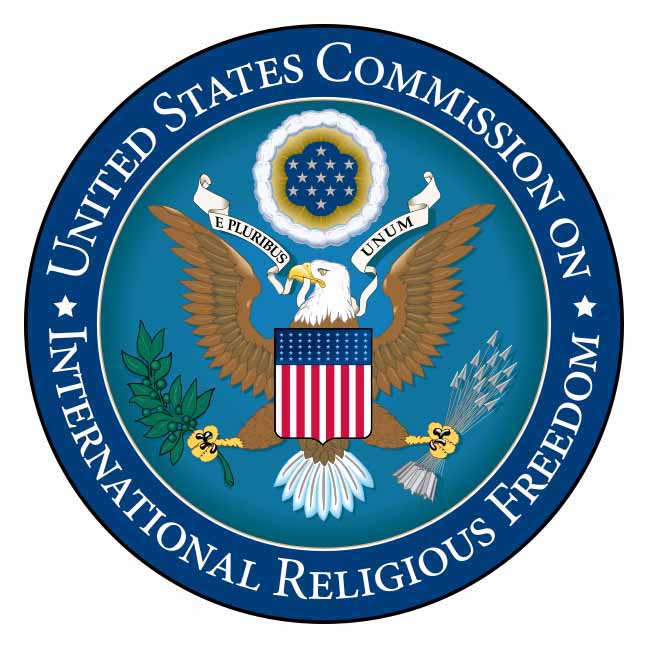
WASHINGTON (BP) — Two more countries — Turkey and Tajikistan — are worthy of inclusion on a list of the world’s worst violators of religious liberty, a congressionally approved watchdog on the issue has recommended.
 In its annual report, the United States Commission on International Religious Freedom (USCIRF) urged the State Department to designate the two governments as “countries of particular concern” (CPCs), which is reserved for regimes that participate in or tolerate “particularly severe” violations of religious liberty. If added by the State Department, Turkey and Tajikistan would increase the number of CPCs to 10.
In its annual report, the United States Commission on International Religious Freedom (USCIRF) urged the State Department to designate the two governments as “countries of particular concern” (CPCs), which is reserved for regimes that participate in or tolerate “particularly severe” violations of religious liberty. If added by the State Department, Turkey and Tajikistan would increase the number of CPCs to 10.
But it appears unlikely the State Department will embrace both recommendations. As of last year, the department had designated only eight countries as CPCs of a total of 14 recommended by USCIRF, which advises the White House, State Department and Congress on the condition of religious freedom overseas.
The commission released its 2012 report March 20, only two days before a new law forced five of its nine members off the panel. USCIRF’s reauthorization, enacted in December, mandates term limits for commissioners. Among those whose service ended was Richard Land, president of the Southern Baptist Convention’s Ethics & Religious Liberty Commission.
In explaining its recommendation of Turkey for the CPC list, USCIRF pointed to the government’s refusal to recognize legally such non-Muslim minority communities as Protestant and Roman Catholic churches, Jews, and Greek, Armenian and Syriac Orthodox churches.
“Furthermore, Turkish officials meddle in these communities’ internal government and education and limit their worship rights,” according to USCIRF.
Only five of nine commissioners voted for Turkey’s CPC designation.
Tajikistan deserves CPC status because of government repression of all religious activities it does not control, USCIRF reported. The regime’s policies primarily impact the majority Muslim community, but it also targets such minorities as Protestants and Jehovah’s Witnesses, according to USCIRF. The Tajikistan government closed 50 unregistered mosques early last year.
Reporting on global conditions, USCIRF said religious liberty “was under escalating attack” during the last year. “To an alarming extent, freedom of thought, conscience, and religion or belief was being curtailed, often threatening the safety and survival of innocent persons, including members of religious minorities,” according to USCIRF’s report.
Among the abuses cited by the commission were:
— Egypt’s refusal to protect religious minorities, especially Coptic Christians, from violence.
— Iran’s continued arrest, torture and execution of its citizens, with Christians, Bahai’is and Sufi Muslims targets of mistreatment.
— China’s suppression of Tibetan Buddhists and Uighur Muslims, making conditions for them “the worst in decades,” and the escalating repression of Protestants and Catholics.
— Pakistan’s abuse of Christians, Ahmadis and Hindus.
— Burma’s prohibition of Protestant house churches and restrictions on Muslims and Buddhist monks.
USCIRF also placed nine countries on its “watch list:” Afghanistan, Belarus, Cuba, India, Indonesia, Laos, Russia, Somalia and Venezuela. All were on last year’s “watch list.” Countries on the “watch list” are those that do not reach the level of CPCs but “require close monitoring due to the nature and extent” of abuses of religious freedom, according to the commission.
In addition to Land, the other commissioners whose service ended March 22 were Nina Shea, Felice Gaer, Elizabeth Prodromou and Don Argue. Shea had served on the commission since its establishment in 1999, while Gaer, Prodromou and Ague had been on the panel since 2001, 2004 and 2007, respectively. Land began his service in 2001 but was off nearly a year before being reappointed to the commission in 2005.
The four remaining commissioners are Chairman Leonard Leo, Azizah al Hibri, William Shaw and Ted Van Der Meid. Leo’s service, however, will be terminated May 14 under the new law.
No new commissioners have been named to fill the vacant slots. The president selects three members for the panel, while congressional leaders name the other six.
One of the reservations expressed about term limits for commissioners is a loss of experience and institutional memory that may result from the limited service. USCIRF — the first commission of its kind in the world — has played a major role in bringing attention to the persecution of Christians and other religious practitioners since it was established by Congress in 1998.
In deciding whether to recommend CPC status for Turkey, commissioners Land, Leo, Shea, Prodromou and Argue favored the designation. Gaer, al Hibri, Shaw and Van Der Meid dissented. Turkey was on the “watch list” from 2009 to 2011.
The commission typically releases its annual report in late April or early May, but it chose to release the report early this year because it faced the problem of not having a quorum when the five members were required to leave the panel. The report covers the time period from April 2011 to February 2012.
USCIRF’s 337-page report may be accessed online at swww.uscirf.gov/images/Annual%20Report%20of%20USCIRF%202012(2).pdf
–30–
















